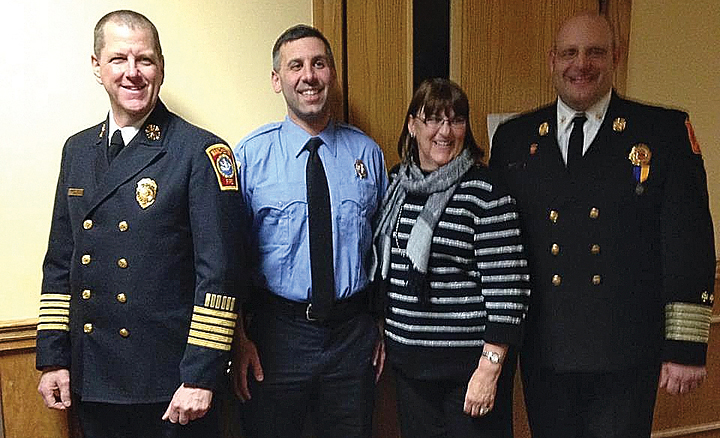After 30 years of working in coastal fire departments and four years training at the prestigious National Fire Academy, Glen Rogers is following his passion as a “lifelong learner in fire service” to Wrightsville Beach as the town’s new fire chief.
Rogers earned the job over 10 other serious candidates because of his experience working in coastal communities very similar to Wrightsville Beach.
“He was an all-around good fit,” town manager Tim Owens said.
Rogers aims to both uphold the standard set by retiring fire chief Frank Smith and find areas to expand on his work. Part of that could include pursuing an accreditation by the Center for Public Safety Excellence, a process the Wilmington Fire Department completed in 2014.
Rogers’ first day is April 18, and he plans to move with his wife to the area the week before.
He was most recently fire chief and paramedic for the Manchester-by-the-Sea Fire and Rescue Department, where he worked from 2012 until December 2015. Manchester-by-the-Sea is a Massachusetts seaside community 45 minutes north of Boston by car. The town has a population of about 5,000, double the approximate 2,500 residents that the 2010 Census counted in Wrightsville Beach.
He began his career in fire service in nearby Cape Cod, starting as a firefighter and paramedic with the Falmouth, Massachusetts, Fire Department in 1986 and earning a promotion to deputy fire chief and paramedic in 1999.
While Rogers’ former departments are hundreds of miles from Wrightsville Beach, he said the unique challenges of delivering fire service to those northern coastal towns also exist in Wrightsville Beach.
All three coastal towns have similar manmade structures, he said, like docks and elevated beach houses. He also has experience fighting boat fires. Other common fire hazards in coastal communities are closely spaced homes and breezy weather, he added.
Rogers has less experience with tall hotels, of which Wrightsville has several. But he said, as someone who seeks chances to learn and grow, he’s embracing the challenge.
“We have a couple hotels in Cape Cod that are about five or six stories, so I was intrigued, when I was researching Wrightsville Beach … in dealing with the high-rise buildings with a small fire department, because you don’t often see that,” he said.
He is also prepared for the additional aspects of the job that come with tourist season, like working with the ocean rescue department and managing the enormous influx of visitors.
Rogers not only brings experience serving one beach, but, at his job in Falmouth, he served multiple beaches. That required working closely with lifeguard agencies to respond quickly and integrate their lifesaving techniques.
He is also familiar with weather events he’ll likely encounter at Wrightsville Beach.
“In Cape Cod and the north shore of Boston, we deal with hurricanes quite a bit,” he said.
And he’ll back up that firsthand experience with storm surge research he completed while undergoing the Executive Fire Officer Training at the National Fire Academy. In addition to multiple research papers on various aspects of fire service, the four-year program allowed him to further refine his skills in leadership, teambuilding and community outreach, aspects of the job he especially values.
He has already met members of Wrightsville Beach’s fire and police departments when he interviewed earlier this year, and he said he was impressed with the professional state in which Chief Smith had left the department.
He also immersed himself in the community, familiarizing himself with Wrightsville Beach culture by running the loop and dining at Causeway Café. He and his wife are “very active, outdoor people,” he said, so the pervasiveness of that lifestyle, year-round, in Wrightsville Beach was part of what originally piqued his interest in relocating there.
But even more than the climate and beauty, what drew him to the area was the people. While walking around town, he struck up conversations with residents to get an initial impression of the community.
It didn’t take long.
“After meeting a few people, I thought ‘Wow, this is going to be a good fit,’” he said.
email [email protected]




